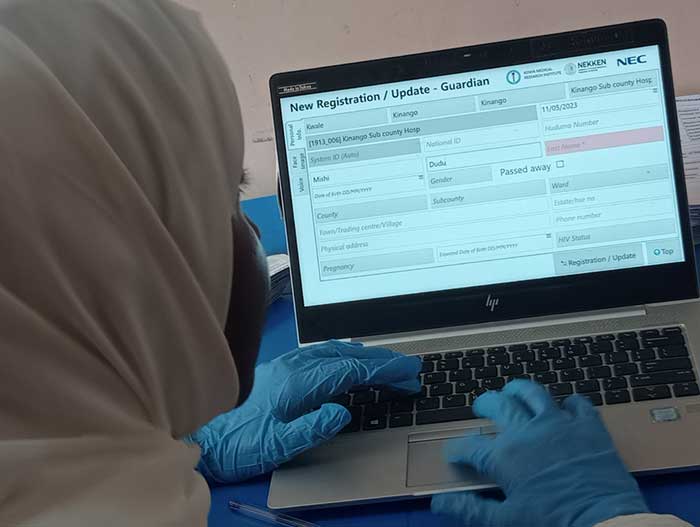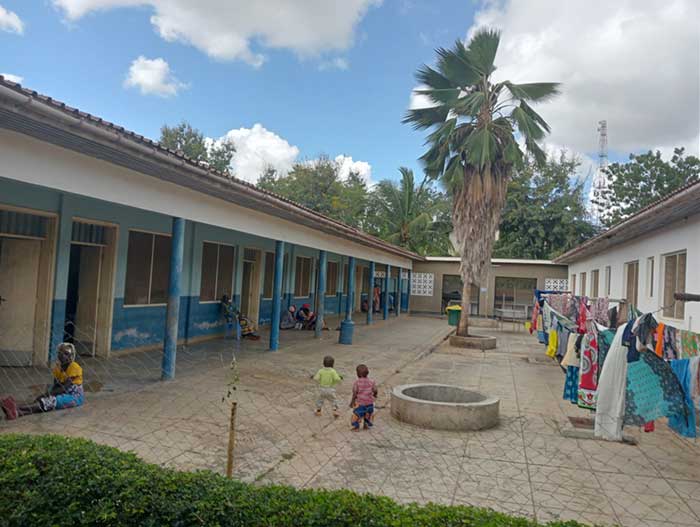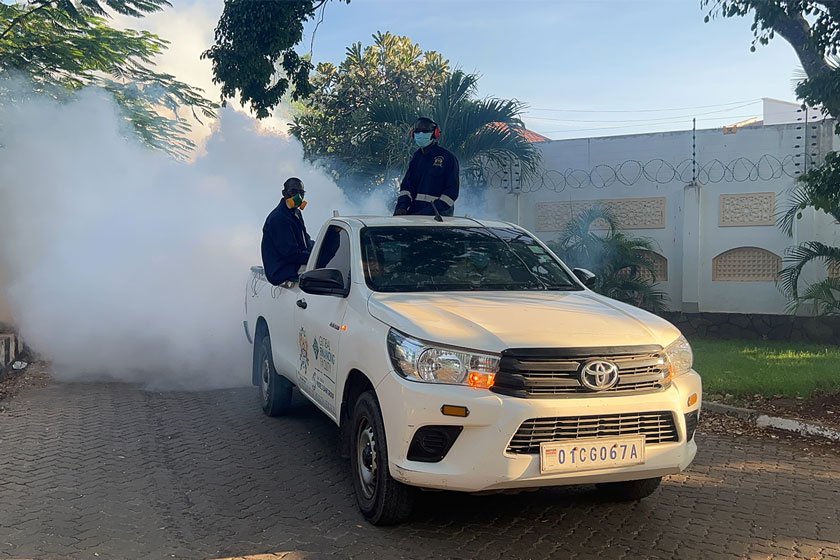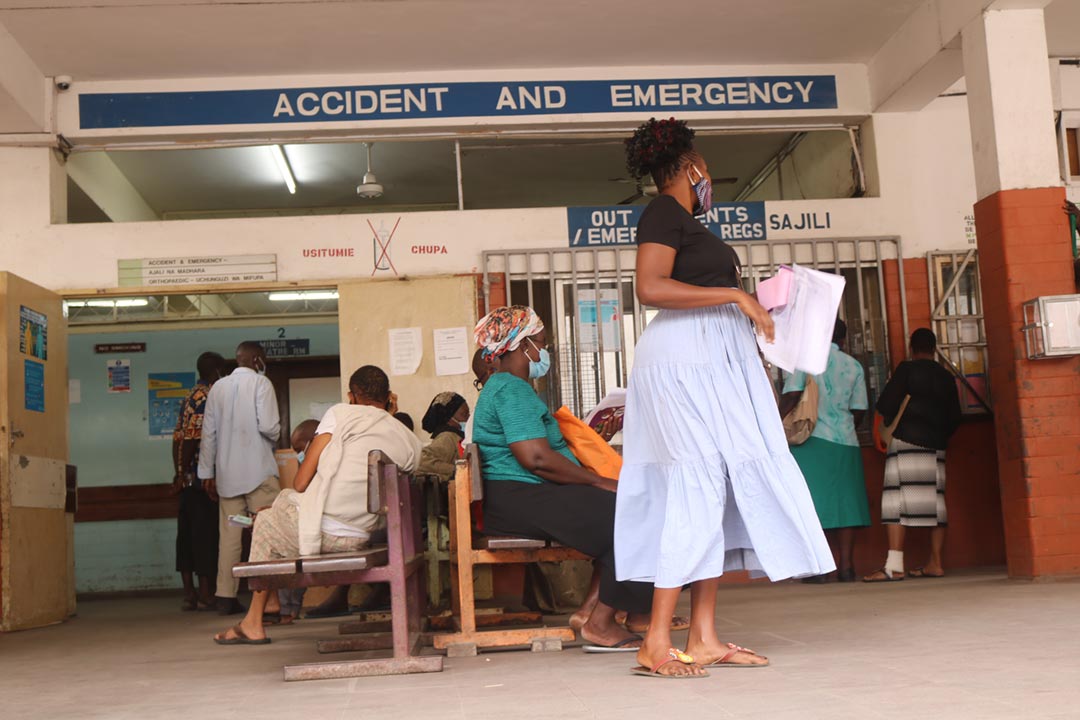Groundbreaking biometric tech brings Kenyan newborns into the digital fold on day one
A new biometric vaccination management system, designed in Japan, promises “great impact” in Kenya and beyond, researchers say.
- 16 January 2024
- 5 min read
- by Diana Wanyonyi

It's a Thursday morning, and the weather along the southern part of Kenya's coast is hot and humid, but the pace in the maternity wing of Kinango Sub-County Hospital shows no signs of slowing down. Already more than seven mothers have delivered safely this week. Amina Chao, breathing through labour pains, will likely be next – and within 24 hours of the child's arrival, Chao and her baby will join a cohort of digital pioneers.
A biometric birthday gift
Chao's hospital roommate, Mishi Gulu, and her brand-new daughter Zawadi have already made the journey down the corridor, to the office where the biometric details of newborn infants and their caregivers are being recorded.
"This project is very good and important to me because even if the clinic book for my baby gets lost, I still get the same data here in the hospital. Sometimes they phone me as a reminder to take the baby to any health facility for vaccination. This is very good because by the end of the day I have saved my baby’s life and also I have saved money that I could have used just in case the baby fell ill for lack of being vaccinated."
– Eunice Mwema, mother
Some 2,000 children have been enrolled in the clinical trial of the biometric-based vaccination management system since September 2022. The system, which is being tested at Kinango Sub-County Hospital by the Kenya Medical Research Institute (KEMRI), the NEC Corporation and Nagasaki University Institute of Tropical Medicine, uses the fingerprints of children as young as two hours of age and the voice imprints of their caregivers, with the aim, ultimately, of improving real-time record management and expanding vaccination coverage.
To Gulu, an 18-year-old first-time mother from Chibandaongo, the process evidently seemed as strange as it is novel. "The nurse took my baby's finger and put something that was blinking on her finger, then after that they took a picture of her. For me, I was given a paper which had some writings to read so that my voice will be recorded."
The purpose, however, was clear. "I am told that this process will show vaccination history of my baby, and also it will be used to send me alert and reminder on my mobile phone to inform me to take Zawadi for vaccination at the hospital," she said.
Say the word
Rukia Hassan Ali, a supervisor at Nagasaki University Institute of Tropical Medicine's formally established Kenya research station, which sits inside KEMRI, is in charge of the biometric vaccination management system. Speaking to VaccinesWork, Ali said before any data is taken, the researchers seek informed caregiver consent.

Credit: Diana Wanyonyi
"The first step is to make sure we get consent from the mother as evidence that shows that she has accepted to [participate in] this research. We explain to her what we do and why we are taking the details. If she accepts, she signs the consent document, and we immediately start the process of registering her and the infant. We take her names as indicated in her national identification card, details of the physical place where she resides and her phone number," she explained.
Marrying those details to unique vocal patterns and fingerprint whorls allows the system to confirm identities while reliably managing vaccination histories and schedules.
Have you read?
"A voice of the caregiver never changes. There is a code in our computer, so once she speaks the computer will automatically identify the voice and the profile of both the caregiver and the infant will open," explains Ali.
Making a difference
Eunice Mwema is a mother of a four-month-old baby who was also registered at birth for the biometric vaccination system. "This project is very good and important to me because even if the clinic book for my baby gets lost, I still get the same data here in the hospital. Sometimes they phone me as a reminder to take the baby to any health facility for vaccination," said Mwema.

Credit: Diana Wanyonyi
"This is very good because by the end of the day I have saved my baby's life and also I have saved money that I could have used just in case the baby fell ill for lack of being vaccinated."
Since voice recognition can be performed almost instantaneously, the system can minimise the burden placed on caregivers, the researchers say. Medical institutions can introduce voice recognition with little to no change to existing procedures.
The aim is for the biometric vaccination management system to roll out widely in the coming period. KEMRI Director General, Professor Elijah Songok, said that the team had chosen Kinango for the trial because it's reasonably representative of the country at large. "The majority of our Kenyan population is rural. When we are working in KEMRI we have to see where the impact is, so we chose here because it's a typical rural area."
He further said that this technology promises a significant impact on Kenya, and on Africa at large. "This is one technology that we noted that will be of great significance to the country, especially to the children."
"It's great indeed – we can be proud that even KEMRI will be able to see the good results that has come from this. We are going to work together not only in Kwale [where Kinango is located], but also with other counties in Kenya to be able to see that this particular knowledge from Japan is rolled out."
"Japan and Kenya have a lot of cooperation on health, including on Universal Health Coverage," Okaniwa Ken, Japan's Ambassador to Kenya, told media.
More from Diana Wanyonyi
Recommended for you







